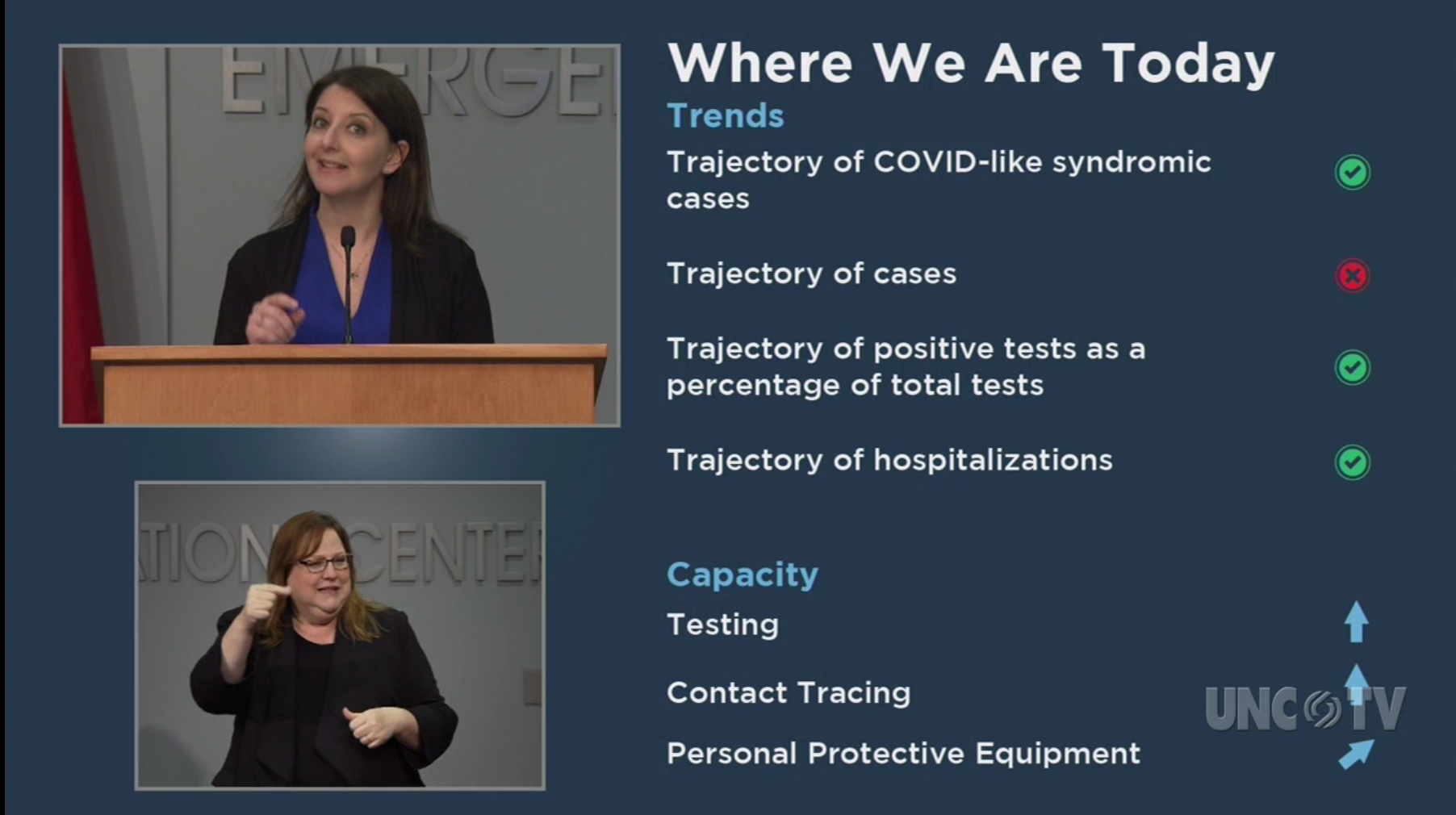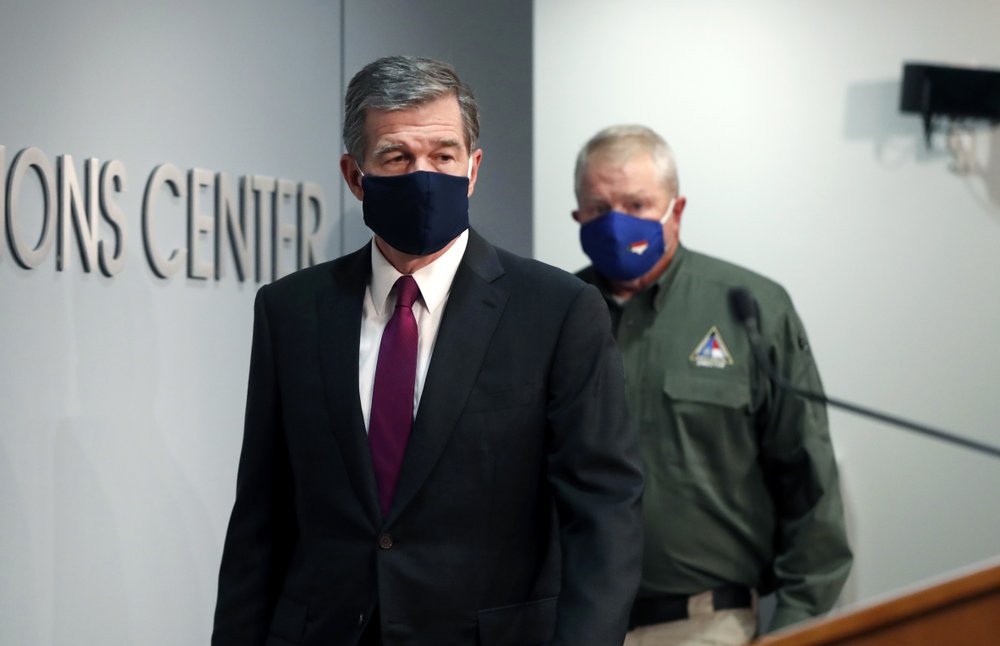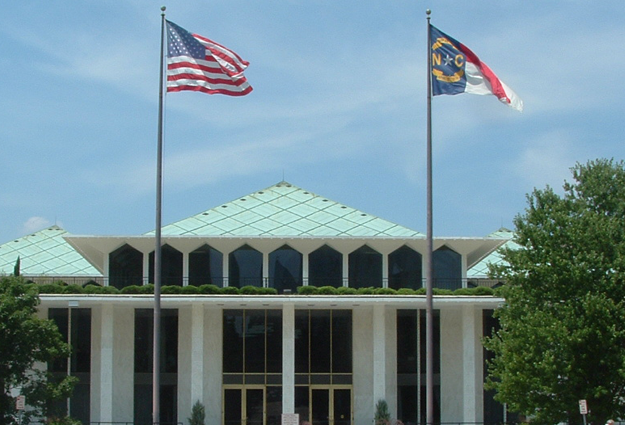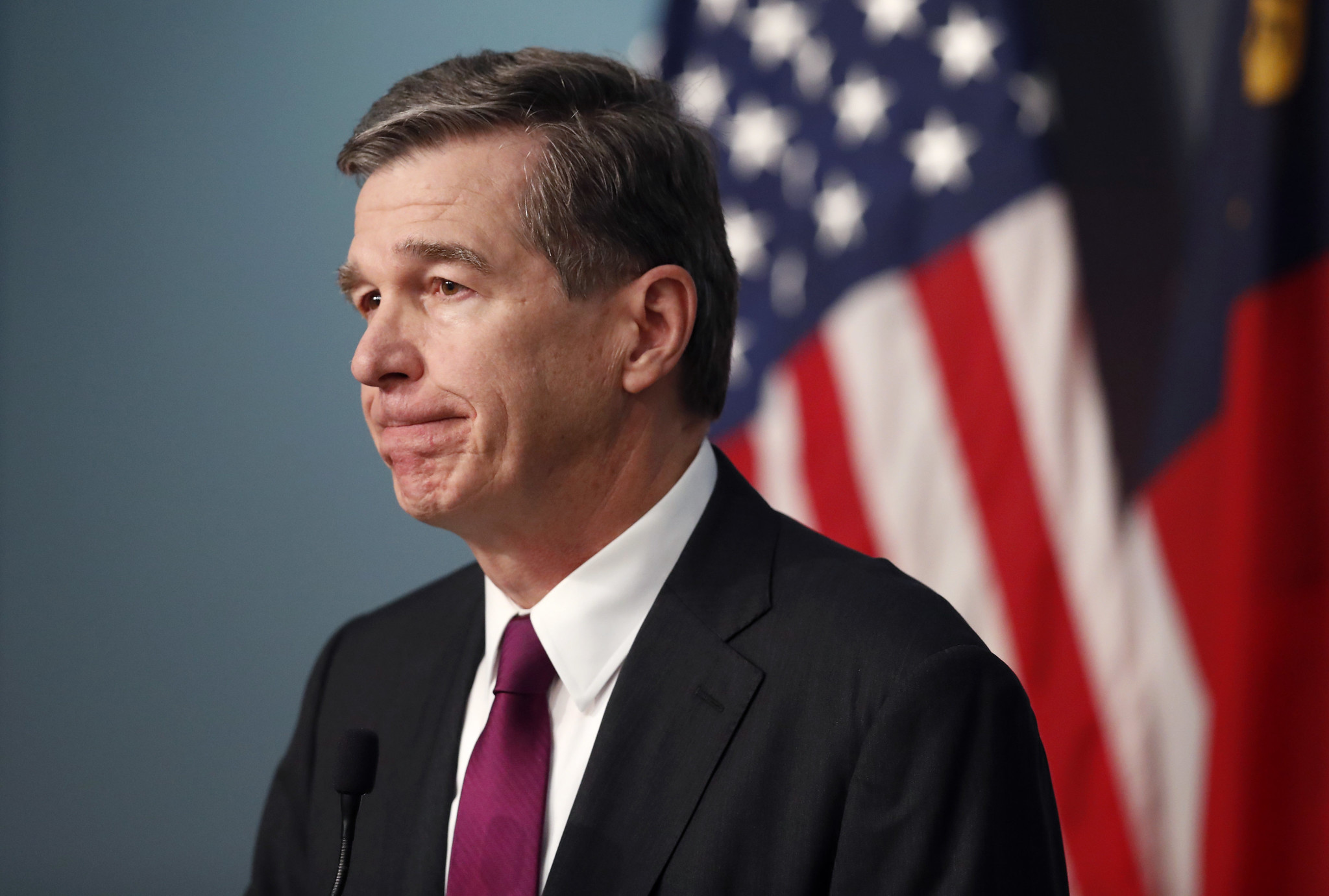Governor Roy Cooper and state health officials announced on Wednesday afternoon the state will move into the next phase of its gradual reopening later this week.
After two weeks of being in Phase 1, Cooper said the state has been hitting enough indicators and benchmarks for testing and tracing of COVID-19 to move into Phase 2. Entering this phase, however, will be different from the plan originally laid out in April, since positive coronavirus cases in North Carolina continue to rise.
“While I am lifting the stay at home order, we’re shifting to a safer at home recommendation,” said Cooper.
The announcement means the governor will alter his state of emergency order to recommend people to stay home as much as possible instead of requiring it. Cooper said at-risk residents should continue to remain vigilant and cautious, and encouraged people to continue teleworking as much as possible.
Cooper said the move will help the state’s economy rebound after many businesses were shuttered with the initial stay at home order as North Carolina moved to mitigate the coronavirus’ spread. This new phase will allow for more residents to gather than before while remaining socially distanced. The governor said the order will require no more than 10 people indoors and no more than 25 people outdoors.
This phase will allow businesses like restaurants, salons and barbers to accept customers indoors again, with capacity, cleaning and face covering requirements. Overnight and day camps can also now open with expanded safety rules.
But Cooper said some businesses initially planned for Phase 2 will be required to stay closed in efforts to remain cautious. Bars, gyms, nightclubs, indoor entertainment venues and public playgrounds will remain closed for now.
“This is because the potential spread of COVID-19 can be significant there,” explained Cooper. “When people gather together, one person can be the spark to gather too many. We can only help our economy when people have confidence in their own safety, which is why it’s important to ease restrictions carefully.”
In Safer At Home Phase 2, the three Ws are even more important. Wash your hands frequently, wait 6 feet apart from other people and wear a face covering. The face covering is more about protecting other people from your germs in case you have the virus and just don’t know it yet.
— Governor Roy Cooper (@NC_Governor) May 20, 2020
The reasoning behind the modified Phase 2 transition is due to the state still falling short of a key surveillance trend.
Dr. Mandy Cohen, the secretary of the State Department of Health and Human Services shared how the state is measuring against the benchmarks set in place by both state and federal officials. She said while testing has been expanded and contact tracing is improving, the number of cases in North Carolina continues to increase.
“I would’ve liked to have seen this trend start to level,” said Cohen. “But it has not started to do that.”
Cohen did say, however, the percentage of positive tests compared to the total number of tests is largely leveling. She also pointed to the state’s trajectory of hospitalizations and medical supply chain being a stable trends.
North Carolina surpassed 20,000 positive cases on Wednesday, one day after the state health department revealed the final county in North Carolina to not have reported a positive case of COVID-19, Avery County, recorded one.

Dr. Mandy Cohen of the State Department of Health and Human Services shares where North Carolina reaches benchmarks in its efforts battling COVID-19 on May 20, 2020. (Photo via UNC-TV.)
Cooper said like his previous executive orders, this new order and phase will be the floor for any safety measures. He said if local governments pass stricter legislation in efforts to protect public health, residents should defer to those rules.
The governor said he and other state officials are continuing to discuss with school officials, concert venues and professional sport venues as they create plans to potentially reopen in Phase 3.
“It’s hard to predict what things will look like a month from now,” said Cooper, “that’s why we’re relying on the data and science. We look forward to getting through Phase 2, but we think this phase is a good boost to our economy while working to keep people safe.”
Phase 2 will officially go into effect across North Carolina at 5 p.m. and is slated to potentially last five weeks.
Photo via the NC Department of Public Safety.
Chapelboro.com does not charge subscription fees. You can support local journalism and our mission to serve the community. Contribute today – every single dollar matters.







Comments on Chapelboro are moderated according to our Community Guidelines